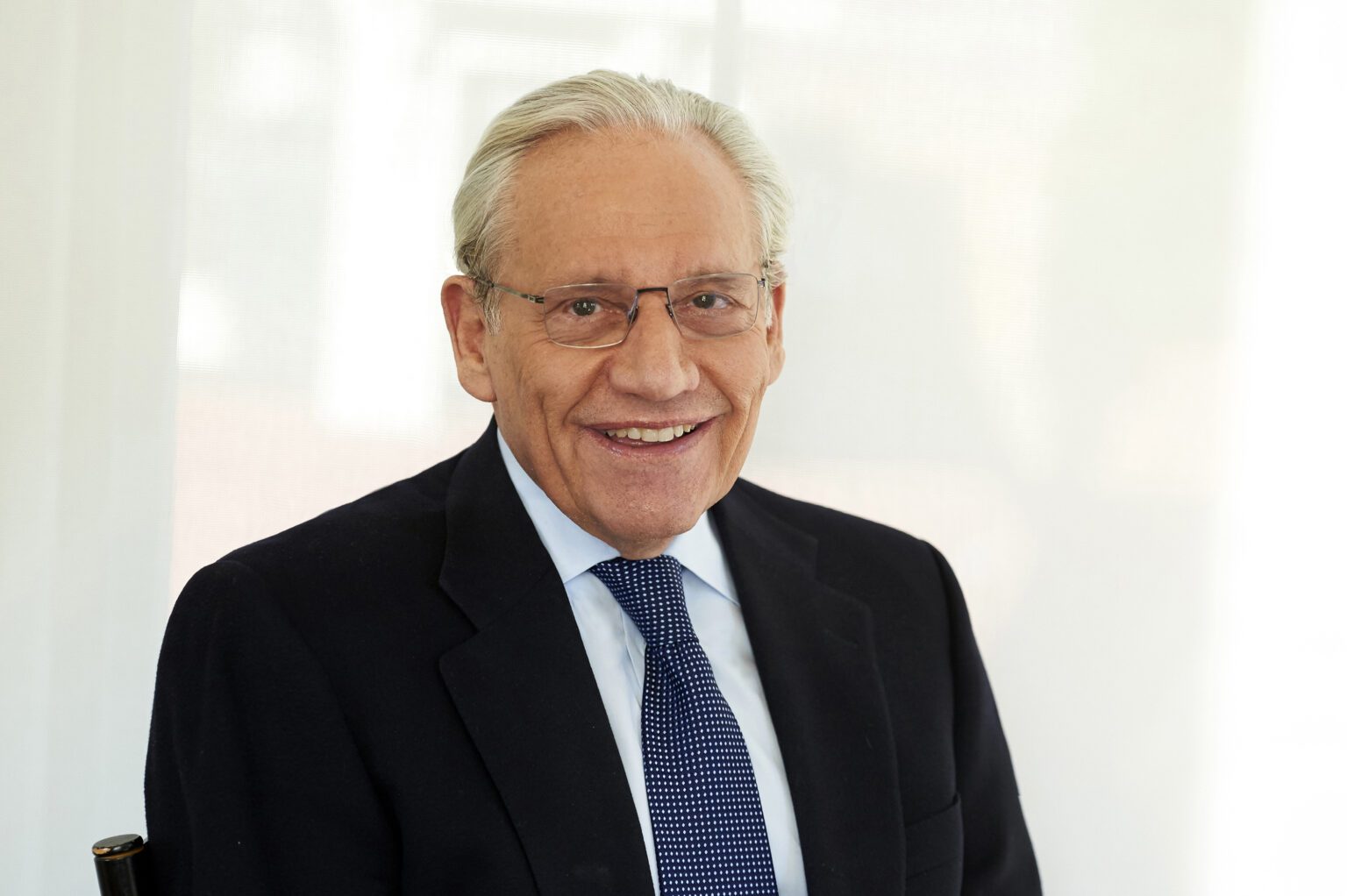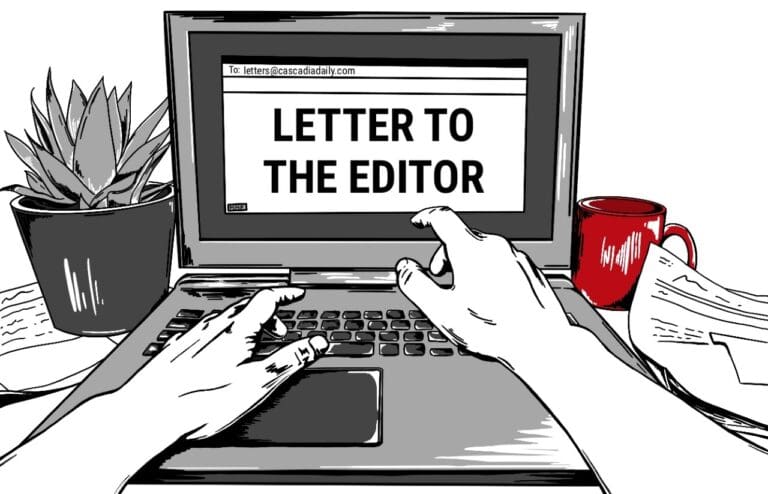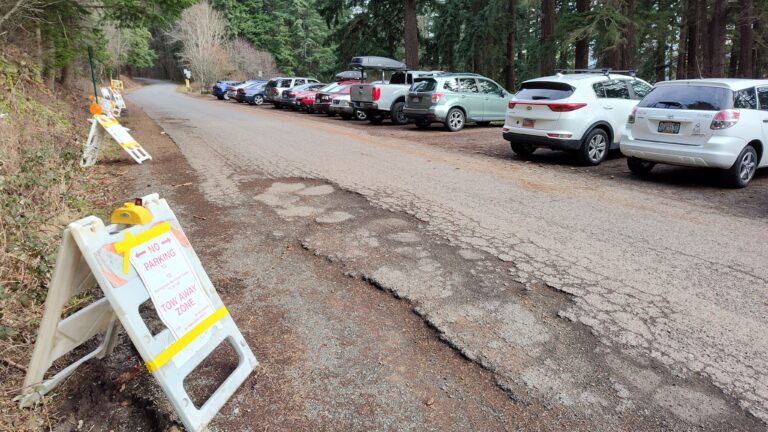From afar, the questions surrounding his every public-stage movement are fascinating political theater playing out in a decidedly Other Washington: What’s motivating Bob Woodward?
From this Washington, it’s less immediate, but equally tantalizing, especially given Woodward’s scheduled Nov. 12 Mount Baker Theatre appearance — a few days after what promises to be a momentous national midterm election.
His most recent release, “The Trump Tapes,” an annotated audiobook version of 20 interviews with the former president, continues to cause a stir, especially given Woodward’s bluntly stated reasoning for releasing the work: a clearer view of the malignant narcissism from a man who has refused to exit the political stage.
In a recent interview with Cascadia Daily News, Woodward, the legendary journalist and historian, framed his release of the Trump interviews as a siren call to a three-alarm fire threatening representative American democracy.
“It increasingly became apparent … that Trump is going to run again, that he’s a presence,” Woodward said. Even in next week’s midterm elections, Trump, he believes, “is on the ballot, as much as Joe Biden is on the ballot.”
In conversation, one gets the sense that Woodward, like others, expected, or at least hoped, that Trump and Trumpism were rear-view-mirror images that turned out to be larger than they appeared.
And as part of what Woodward describes as a routine part of his work — constant reevaluation of his written words in relation to the unfolding historical record — he was struck by how the malfeasance and narcissism of the former chief exec is driven home by listening to the loud voice itself — words spoken while much of the nation trembled in pandemic fear.
“As you know in reporting, there’s a certain serendipity,” Woodward said. “A great lesson of journalism, which I keep learning, is keep going back. Talk to people, understand, put the pieces together.”
He added: “My process is to be as thorough as possible. I had these [interviews] on audio, and said, ‘Well, let’s listen.’”
In that context, Woodward saw the Trump tapes serving an increasingly vital public interest, both near and far. Beyond the immediacy of the election, they feel like something with the historical heft of the famed 1977 Nixon/Frost tapes, with the clear difference that Nixon, when interviewed, had been neutered as a political force.
Woodward is convinced the public needs to hear his conversations with the 45th president to get the full scope of his delusional grandeur. Sticking particularly in his mind is a March 2020 conversation Trump reported having with his own son, Barron, who rather than being consoled was subjected to the same gaslighting as the American public about the COVID-19 virus.
“Listen to that,” Woodward urges. “He went up to Barron’s bedroom … All his classmates are talking about is the virus because it’s closed down the country and the schools in many cases. Trump tells him that the Chinese could’ve stopped this two months ago, but they were so secretive. It’s Trump telling Baron what the Chinese could have done.”
The recordings also contain the now-infamous interview in which Trump confesses that he was intentionally misleading the American public about the severity of the virus — a confession Woodward says he didn’t know whether to even believe, given the general state of Trump delusion. It wasn’t until many weeks later, he said, that he confirmed through further reporting that Trump had, indeed, been fully briefed on the severity of the virus by his own national security advisers.
Woodward took it all into account when deciding to release the conversations in an annotated format, paying attention to timing and present context. What he sees, and hears, is a grave injustice committed against the American public.
“First, there’s denial about the virus, then concealment. And you can really see the crime unfold,” Woodward said. “He knew and didn’t tell the people — a fundamental responsibility for the president, to warn.”
Not surprisingly, there’s a lot more here, which Woodward promises to discuss in greater detail in person. I consider his appearance here, which I will be fortunate to moderate, as a grand opportunity to further pick Woodward’s brain about his own frame of mind when exploring the gold mines of original material to which he’s been granted unique access: Is he thinking like an in-the-moment journalist, or a measured, contextual historian?
His placeholder answer, “both!” is expected but worthy of further exploration.
He rejects criticisms of “sitting on” material of public interest for later use in a book as a misunderstanding of his methodical reporting process. (To this writer, this understandable charge seems better aimed at journalists still working the White House beat. But Woodward makes clear that he is perfectly capable of slipping tips to national reporters that need prompt airing, suggesting that he has done so.)
Bottom line: Woodward made a choice, from his own unique perch, to wait and present it all in what he considered essential context: Debatable, as a journalist, but also defensible, as a writer of history.
It’s easy to defend the release of the tapes, which he says Trump agreed would be on the record, in those terms: “Suppose you had eight hours of interviews with FDR during World War II …” Woodward mused.
But at 79, he also acknowledges having his own legacy in mind.
“Quite frankly, I didn’t want somebody in my archives in 20 years to be looking through and find this and listen to it and say, ‘Wait a minute, why didn’t we know this?’”
History will judge him as it may. A friend, Woodward says, recently asked about his most recent work: Suppose Ben Bradlee and Katharine Graham [of Washington Post Watergate-era fame] asked about what you’ve been doing — would they approve?
“You ask me that question when I’m there,” Woodward said. “I’ll be happy to answer.”
Count on that one.
Ron Judd’s column appears on Wednesdays. Email: ronjudd@cascadiadaily.com. Twitter: roncjudd.





Commentary response: Nursing-home staffing mandates critical to dignified care